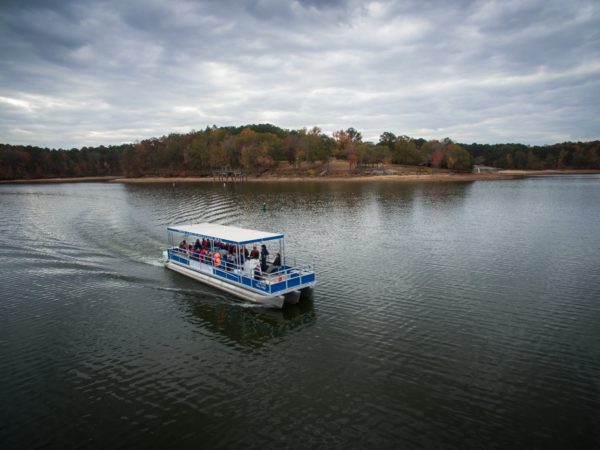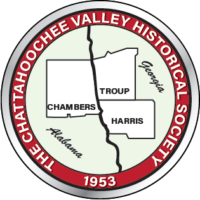This meeting was cancelled due to the pandemic.
Winter 2020 Quarterly Meeting
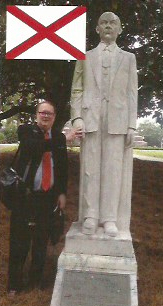
How the Family History of a Boy from Fairfax Intersected with the Civil Rights Struggle in Alabama and the Making of a Movie Presented by Jim Patterson, United States Diplomatic Service
Writer/speaker Jim Patterson has many interesting stories to tell ranging from describing boyhood in an Alabama textile mill village, to traveling worldwide as an economics and political officer of the United States Diplomatic Corp, to being an actor in a movie which portrayed his father’s role in the Alabama National Guard during the Civil Rights struggle in Alabama. Ever mindful of public service by members of the Patterson family, Jim was motivated to a career in public service and now is inspired to describe his family’s historical intersection with the Civil Rights struggle in Alabama. His father James Glover Patterson (b.1933 d.2003) served in the nationalized Alabama National Guard during three significant historical events: the Cuban Missile Crisis, the integration of the University of Alabama, and the Selma March. Jim’s interesting family story animated him to seek to re-enact his father’s roll as a National Guardsman during the Selma March in the making of a movie. He will describe his father’s nationalized guard duty in the 1960’s and how those experiences affected the Patterson family and Jim’s values. In an attempt to memorialize his father’s public service in the Alabama National Guard, Jim describes his effort to project himself into commercial film making, into acting in the award-winning film, Selma. Although Jim has lived away from the Valley and Alabama since he finished his education, he acknowledges that he has lost his southern accent, but his core values have always been rooted here in the Valley and Patterson family history.
Jim Patterson was reared in the Valley town of Fairfax, graduating in 1973 from Valley High School and later from Auburn University. Following university, he moved to Washington, D. C., where he began his career as a Foreign Service Officer at the United States Department of State. Jim has served as a US Diplomat in Mexico, United Kingdom, Brazil, Canada, Chile, France and the Netherlands. He is currently stationed in Washington, D.C. He is a contributor to The Foreign Service Journal, The Hill and other publications. His graduate education includes continuing studies at Georgetown University, the Graduate School, U.S. Department of Agriculture, and the Foreign Service Institute.
Jim enjoys public speaking on US foreign affairs, family history and on his life experiences. He is a member of the Sons of the American Legion, Associate Member of the Korean War Veterans Association, Life Associate Member of the Vietnam Veterans Association, The US Philippine Society, Friends of Israeli Defense Forces, Donor/Member of Helen Keller International, Life Member of the American Foreign Service Association. He is a member of the Auburn University Alumni Association, Alabama’s State Society, and the Chattahoochee Valley Historical Society. He is a formerly elected official in Indianapolis, Indiana, and in Washington, D. C.
Fall 2019 Quarterly Meeting
A Mill Village Story Presented by Gerald Bruce Andrews
The Chattahoochee Valley Historical Society is happy to announce that Mr. Gerald Bruce Andrews will be the speaker at the October General Membership Meeting on Sunday, October 27, 2019, 3:00 EST in the Lanier Room, The Chambers County Bradshaw Library, Valley, Alabama. Mr. Andrews will review his recent book which is descriptive of growing up in the mill villages and working in the mills of the Chattahoochee Valley. His book is biographical and his story’s setting is the village with its mill and the many working people of good character in that past era.
The publisher, New South Books, describes: “A Mill Village Story is the record of one man’s upbringing in a place and time that is quickly vanishing. A quintessentially American small town, West Point, Georgia is a place defined by its local industry—a world-class textile mill run by the WestPoint-Pepperell Corporation—and adherence to traditional Southern values of congeniality, manners, and friendliness. Everyone author Gerald Andrews knew or even just rubbed shoulders with worked at the mill, and it was Andrews’ experiences there that would take him from relative poverty to the corporate boardroom. A Mill Village Story is an account of Andrews’ early years, his rapid rise to leadership in various textile firms, and the special character of the village that shaped him.
How does a young man go from night watchman to corporate sales in a matter of years? A Mill Village Story offers some explanation. Creativity and kindness set him on the right path, those characteristics nurtured in him by family members and the mill community. Gerald Andrews also quickly gained a reputation as a problem-solver—even at the lowest position at the mill—and for recognizing the importance of every employee, no matter their rank. This compassion for his employees contributed to his success. In A Mill Village Story, a lifetime of wisdom comes to file, with Andrews peppering his tale with the homegrown philosophies he developed from the unique social relationships he enjoyed growing up. Add to the mix personal encounters with Southern characters like country psychic Mayhayley Lancaster and A Mill Village Story becomes a memorable time capsule that serves as a portrait of a uniquely American place.
Gerald Andrews grew up in a small Southern mill village. He attended Auburn University and Harvard Business School, and has received over eighty honors and awards in praise of his creative brand of leadership. He has served as Corporate Executive Vice President of West Point Stevens, Inc. in New York; President and CEO of Johnston Industries; CEO and Chairman of Accelegrow Technologies; and Executive-in- Residence at Auburn University. A Mill Village Story is his first book.”
Members of the general public and members of the Chattahoochee Valley Historical Society are invited to attend the presentation by Mr. Andrews in the Lanier Room, Bradshaw Library, Valley, Alabama, Sunday, October 27, 2019, at 3:00 EDT.
Summer 2019 Quarterly Meeting
Thank you, Mr. Rosenwald
Presented by Susan Webb, historical interpreter
The Chattahoochee Valley Historical Society is happy to announce that Ms. Susan Webb will be the speaker at this month’s general membership meeting. Using photographs, documented interviews, historical artifacts, audience participation of authentic recitation lessons and tales of early American education, America’s Traveling Schoolmarm will transport you to the legacy of Julius Rosenwald and the schools he helped build in the back roads of Alabama. Julius Rosenwald, the early 20th-century president of Sears, Roebuck and Company, was a German-Jewish immigrant, philanthropist and trustee of Tuskegee Institute. From 1912 until 1932, his generous caring and compassion for the education of 663,615 African-American children helped blanket 15 Southern states with over 5,300 school buildings, 407 of which were built in Alabama. His collaboration with Booker T. Washington, Tuskegee Institute, and grassroots community efforts resulted in a program which constructed schoolhouses, teacher homes and industrial high schools across the South. By 1928, one in every five African-American rural schools in the South was a Rosenwald school. Makeshift classrooms in run-down shanties and dusty church basements were replaced with well-constructed and carefully planned Rosenwald school buildings. Today, through the efforts of local residents, the National Trust of Historic Preservation, and generous corporate contributions, many Rosenwald schools are being restored in southern communities, including Notasulga, Greensboro, Midway, and Fredonia, Alabama.
Susan Webb, early American school historian, has become America’s Traveling Schoolmarm. Having lived in areas of the country steeped in the history of country schooling, Susan has developed a passion for the study of American education. Her 20 years as a classroom teacher, her background in theatrical presentation, and over a decade of early-American education research prompted her to develop her entertaining and unique, yet informative, programs. These ventures have transported her to libraries, universities, conference sites, historical societies and museums across the United States. From these journeys she has collected a small library of antique schoolbooks and an array of historical school artifacts. Susan has set foot in countless historically restored country schools throughout the country to engage audiences in school reenactments, utilizing her book Country School Copybook and other publications she has written: Ready for Reenactment?, School Days Lessons, Masterful McGuffey, and My One-Room School Copybook.
Members of the Chattahoochee Valley Historical Society and the general public are invited to attend the program in the Fredonia Community Center (formerly the Fredonia School House) in Fredonia, Alabama, Sunday July 28, 2019, 3:00 p.m. EDT.
Spring 2019 Quarterly Meeting
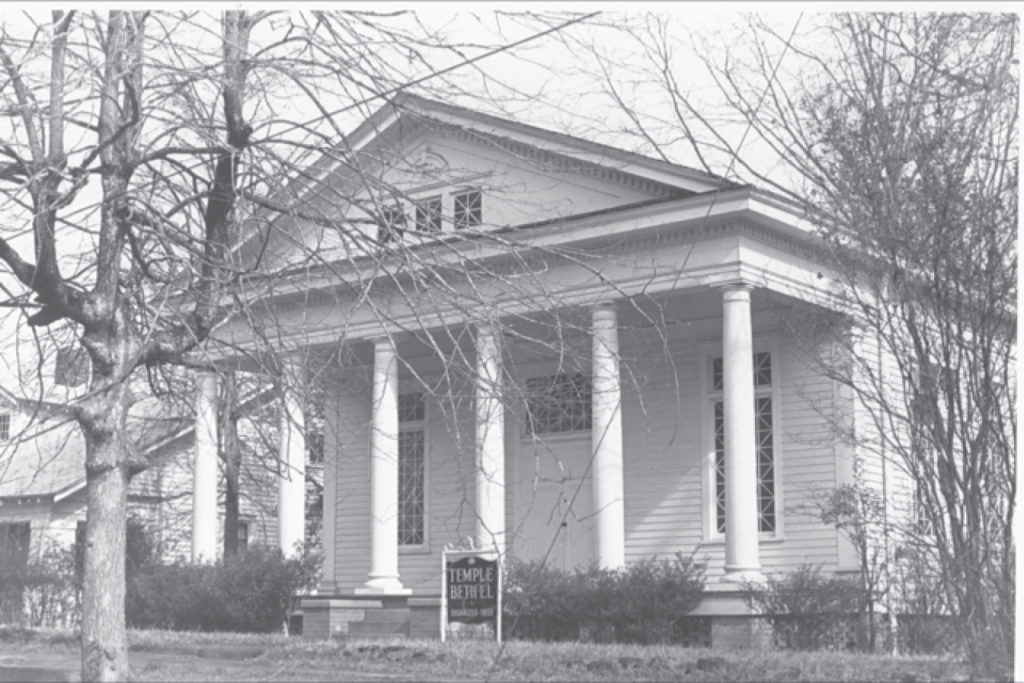
When young Louis Merz arrived in Philadelphia, he quickly found his way to the residence of cousin Sam Cohen, a fellow Jewish emigrant from Bavaria. Cohen introduced his kinsman to another boarder in the house, Heyman Heyman from Prussia. These three young men were part of a tight-knit band of Jewish immigrants who had come to America’s “City of Brotherly Love” to escape antisemitism in Europe and pursue the American dream. After a year of working in the city’s mercantile trade, Heyman and Merz headed south, eventually opening a dry goods store in West Point, Georgia, in 1854.
Over the years, friends and relatives followed and became an integral part of West Point’s business community and social life. Several of these families- Heyman, Merz, Hagedorn, and others- lived in “Bluffton”, the Alabama heights overlooking the growing city of West Point. By 1859, they had established a Jewish congregation and held religious services in each other’s homes until a temple was constructed in 1909 in “Grandma Heyman’s (former) garden”.
Their stories are the focus of the quarterly program of the Chattahoochee Valley Historical Society on Sunday, April 28, at 3:00 pm EDT. History educators Malinda and Charles Powers will serve as presenters. While the former specializes in American and Alabama history, Charles is a university instructor with a concentration in European and American history. Mr. Powers will highlight the plight of the 19th-century Jews living in Prussia and Bavaria, lands which would later become part of the nation of Germany. In addition, he will examine their emigration to U.S. cities such as Philadelphia. A power-point presentation will include a variety of old photographs.
In 1959, the centennial anniversary of the founding of Temple Beth-eL, Miss Fannie Herzberg presented a paper she had written on its history and pioneer members to our historical society. Miss Herzberg, a resident of West Point, was a granddaughter of Heyman (later “Herman”) and Betty Heyman. At the close of her presentation, she stunned the crowd with her donation of the Confederate diary of her great uncle, Louis Merz. This diary was transcribed, and both Miss Herzberg’s address and the contents of Merz’s diary were published as CVHS Bulletin #4 later that year. The diary was then placed in a security vault for safe-keeping.
For the first time in 60 years, this diary will be on public display at our upcoming quarterly meeting. What a unique opportunity for those interested in local or Civil War history to view this important artifact! The program will be held at the H. Grady Bradshaw Library in Valley, Alabama, and is open to the public. For directions, please check our website at www.cvhistoricalsociety.org.
Winter 2019 Quarterly Meeting
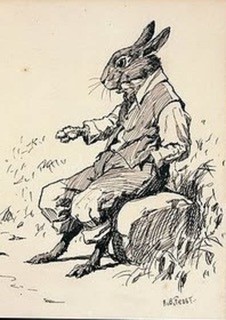
The Chattahoochee Valley Historical Society will host its winter quarterly program on Sunday, January 27, at 3:00 pm ET, at the Bradshaw Library in Valley. Guest speaker for the event will be author Julie Hedgepeth Williams, a journalism professor at Samford University with a specialty in media history. Williams has recently penned a new book, and will be speaking about its historical backdrop at the program.
According to her publisher, Williams will be speaking from her research and writings on interactions in the lives of three men and how their serendipitous interactions culminated in the creation and publication of the Uncle Remus stories. The three men, Joseph Addison, Joseph Addison Turner, and Joel Chandler Harris are creatively described in her new book, Three Not -So-Ordinary Joes: A Plantation Newspaperman, a Printer’s Devil, an English Wit, and the Founding of Southern Literature, published this year by New South Books.
The author describes her presentation as “story-telling based”. She even incorporates audience volunteers as participants in several skits based on the Uncle Remus stories.
Julie Williams is also the author of A Rare Titanic Family, winner of the 2014 Ella Dickey Literacy Award, and Wings of Opportunity: The Wright Brothers in Montgomery, Alabama, 1910. She will have copies of all three of her books for sale at Sunday’s program.
The general public is invited to this program of the Chattahoochee Valley Historical Society and to enjoy Dr. Julie Williams’s presentation.
Regional History Events Page Added
The CVHS website has a new addition that promotes regional history events. Check out the activities that are coming up and mark your calendars!
Here is a quicklink to the REGIONAL EVENTS page.
Coming up in early September is the History Cruise on West Point Lake, you’ll want to check it out along with other happenings in our area.
